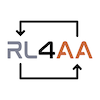Reinforcement Learning (RL) has demonstrated its effectiveness in solving control problems in particle accelerators. A challenging application is the control of the microbunching instability (MBI) in synchrotron light sources. Here the interaction of an electron bunch with its emitted coherent synchrotron radiation leads to complex non-linear dynamics and pronounced fluctuations.
Addressing...
The complexity of the GSI/FAIR accelerator facility demands a high level of automation in order to maximize time for physics experiments. This talk will give an overview of different optimization problems at GSI, from transfer lines to synchrotrons to the fragment separator. Starting with a summary of previous successful automation, the talk will focus on the latest developments in recent...
DESY has many years on experience on optimization and control of particle accelerators. Reinforcement learning has been explored within the last three years. In this talk the results of this investigation are summarized and an outlook is given. Further control and optimization challenges for operation are presented and discussed.
In order to improve BESSY's experimental environment, several ML-based applications are used at HZB. These efforts cover challenges arising at the accelerator, beamlines and detectors at the experiment. This talk provides on overview of these activities focussing on RL and providing insights in the optimization of a beamline, tuning of an e-gun as well as electron beam positioning in BESSY's...
CERN has a long tradition of model-based feedforward control with a high-level of abstraction. With the recently approved project “Efficient Particle Accelerators”, the CERN management commits to go one step further and invest heavily into automation on all fronts. The initiative will therefore also further push data-driven surrogate models, sample-efficient optimisation and continous control...

